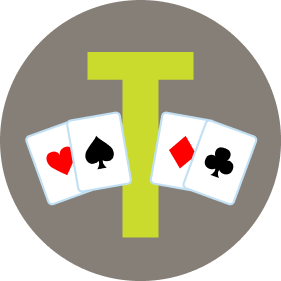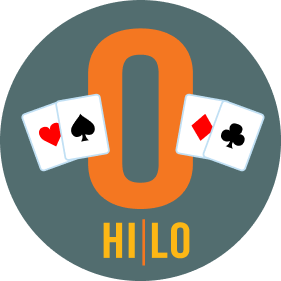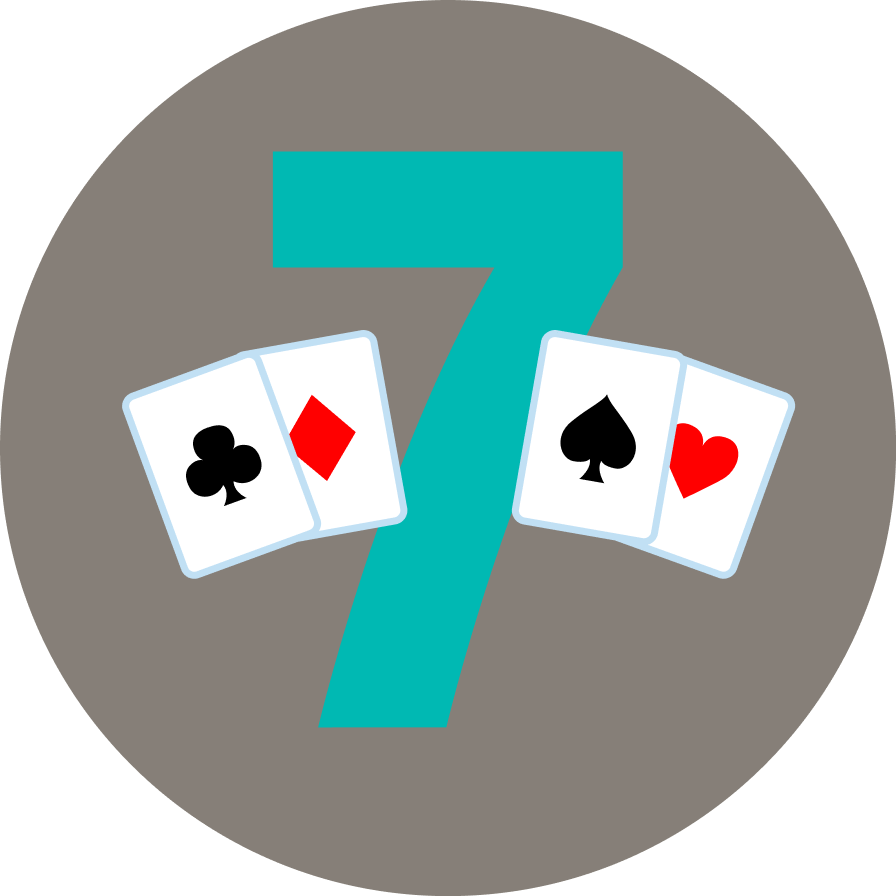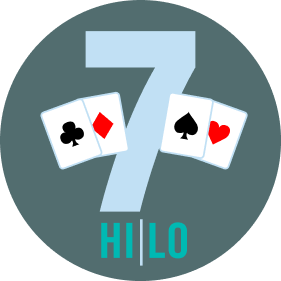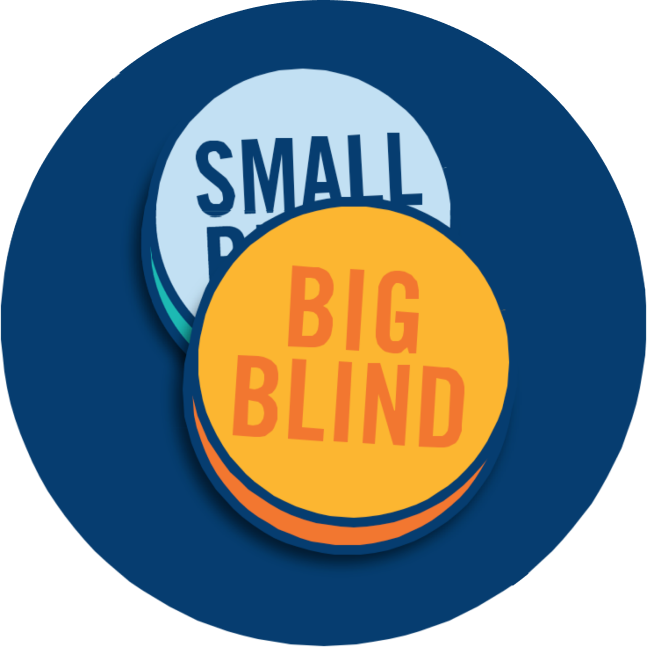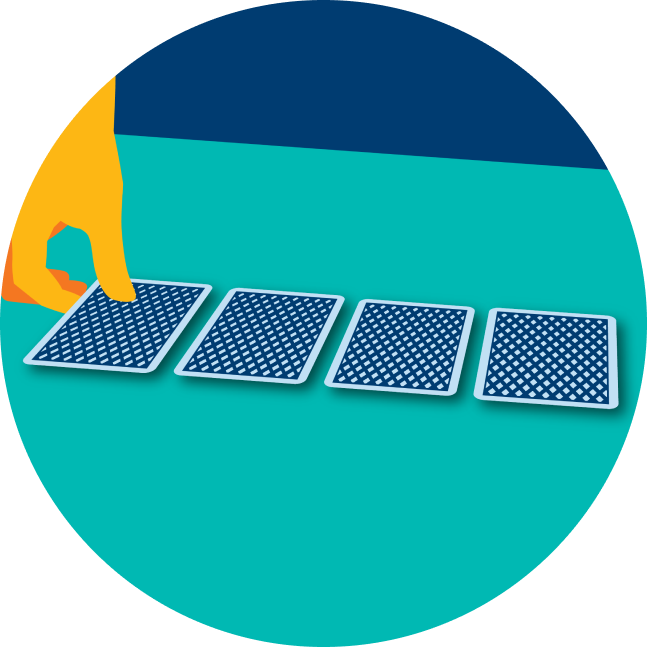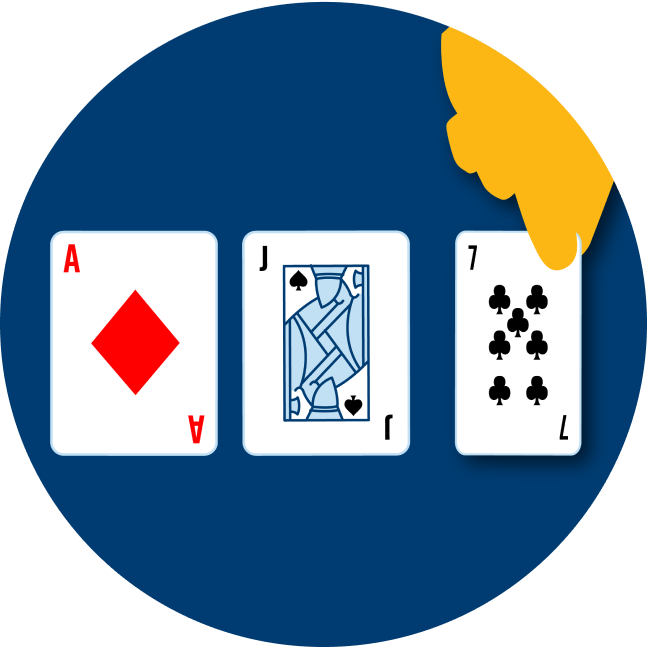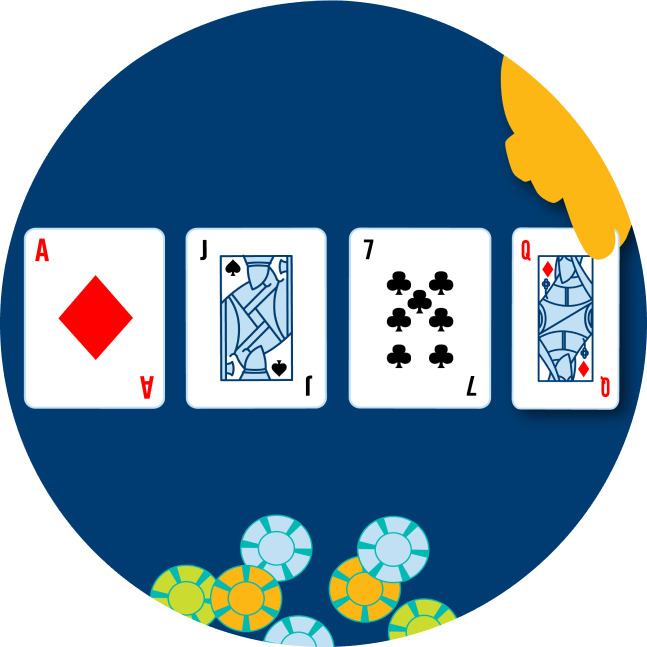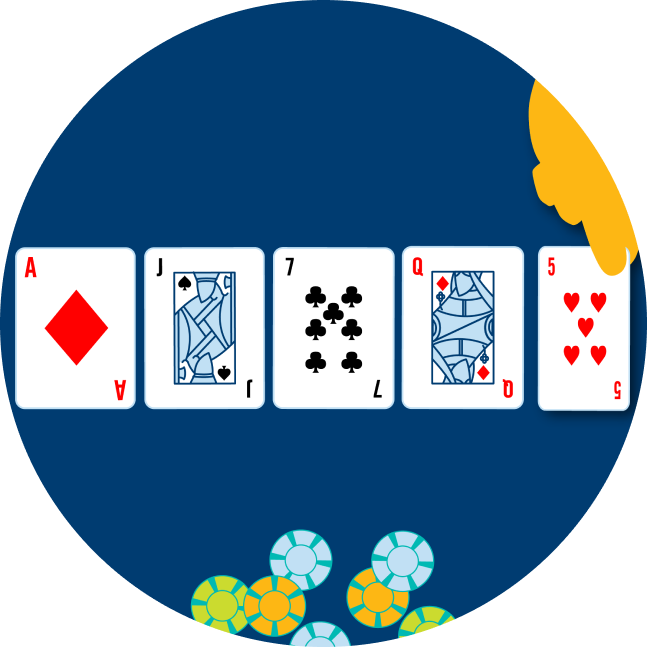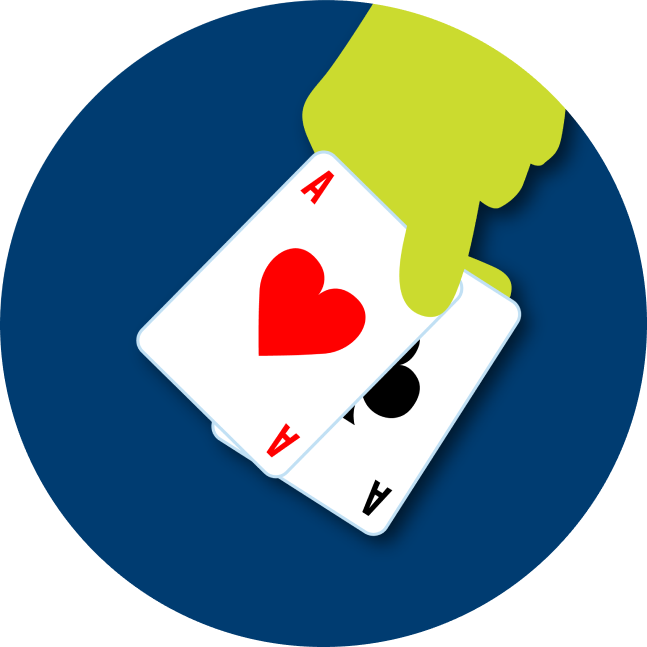Many poker games can be divided into two categories: Community or Stud. Here’s how they break down:
Community
Stud
Community
In Community poker games, hands are made using a combination of personal cards players receive directly from the dealer (called “hole” cards), and community cards the dealer places on the table for all to use.
Stud
In Stud poker games, hands are made using only the personal cards a player receives directly from the dealer.
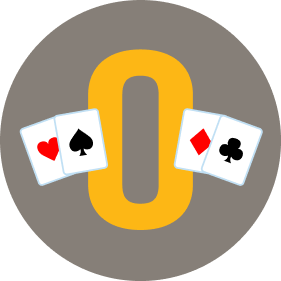
Omaha
(Community)
Sometimes known as Omaha Hold’em, Omaha is a community card poker game with rules that will be familiar to players of Texas Hold’em. The real difference is in the number of personal and community cards dealt to the table. Omaha can be played with or without betting limits.
How to Play
Odds
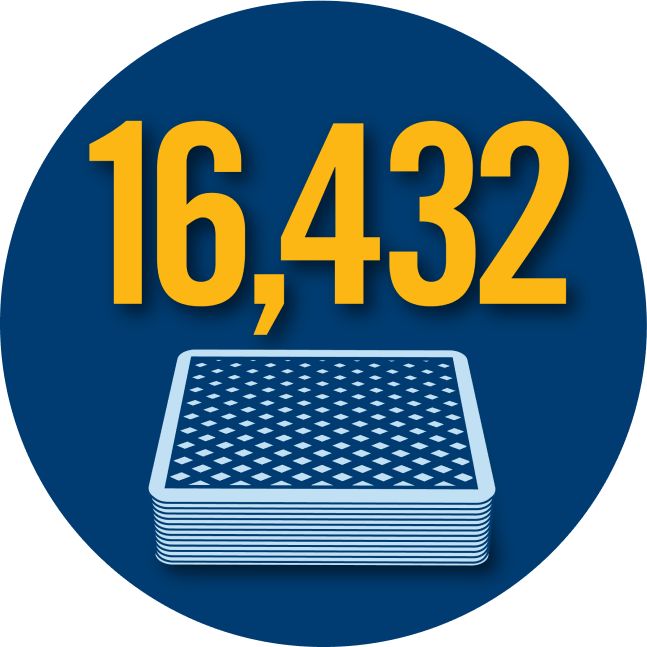
The odds of Omaha can be quite different from other poker games. With four cards per hand, there are 16,432 possible hands you may be dealt.
Because of this, the game is considered a “nut” game. This means that if you don’t have the “nuts”, the best possible hand given the options, the chances of winning the pot are extremely low.
Strategies
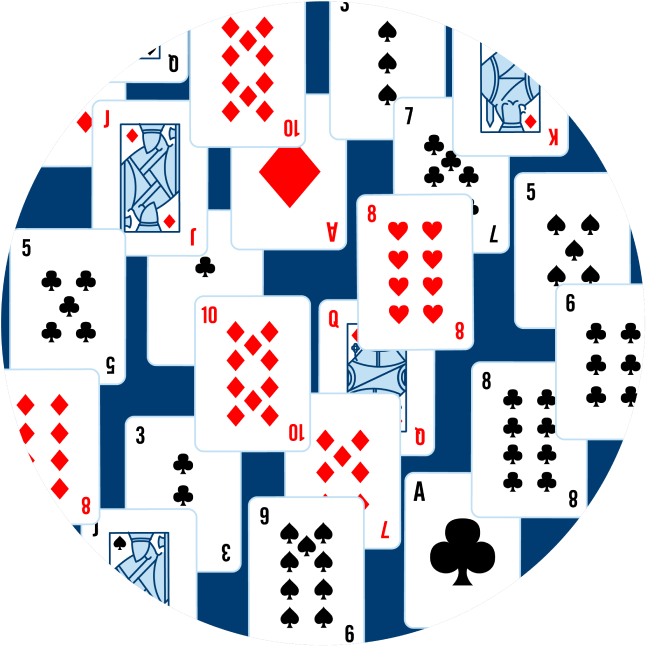
Like all poker games, the outcome of Omaha depends on the random distribution of cards from a deck. That said, the following strategies may help extend your time at the table:
- Don’t raise on the Flop very often
- If you don’t have great cards, don’t feel bad about folding on the Flop
- If you have a great starting hand, play more aggressively
